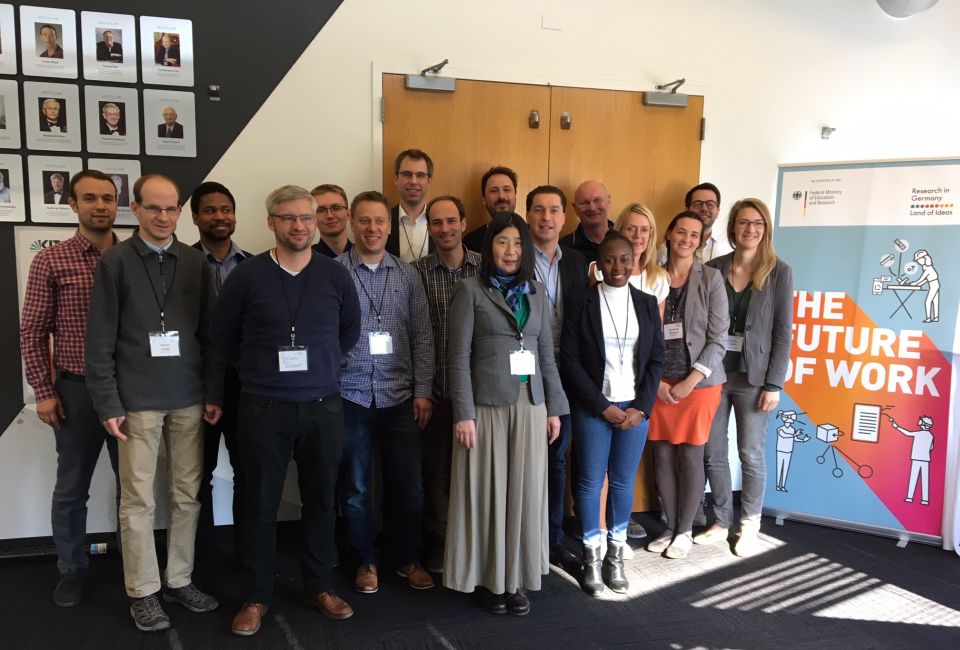Ten German research networks in the international research marketing campaign 'The Future of Work', launched by the German Federal Ministry of Education and Research (BMBF) in May 2019,reached out to partners for joint R&D projects in the area of Work 4.0 at the Transatlantic Sync conference held in Silicon Valley from 27 to 29 October 2019.

Participants from Germany at the Transatlantic Sync conference 2019 © DLR / Marianne Vaske
Some 20 researchers from 11 renowned German universities and research institutes discussed their projects and solutions for sustainable working worlds of the future with prominent US experts, including Andreas von Bechtolsheim (co-founder of Sun Microsystems), John Hennessy (chair of Alphabet) and Prof. Hal Varian (chief economist at Google) at the 'Transatlantic Sync' Some 20 researchers from 11 renowned German universities and research institutes discussed their projects and solutions for sustainable working worlds of the future with prominent US experts, including Andreas von Bechtolsheim (co-founder of Sun Microsystems), John Hennessy (chair of Alphabet) and Prof. Hal Varian (chief economist at Google) at the IntWash research project is one of the highly promising projects. It uses artificial intelligence and automation to improve efficiency, environmental protection and work safety in commercial laundries in the USA, for example with sensor-controlled grippers automatically removing scalpels from dirty
hospital laundry.
Germany’s involvement in Transatlantic Sync is the second stage of the BMBF’s current international research marketing campaign 'The Future of Work', which the DLR Project Management Agency is organizing on the ministry’s behalf. The conference offers ten excellent research networks from Germany a platform to present their innovative projects abroad and to network with strong partners worldwide.
The initiative for the Transatlantic Sync conference came from German junior researchers at Stanford University and alumni of the Karlsruhe Institute of Technology (KIT). 'It’s about how we want to live in future and how we want to answer the questions posed by our globalized world about how we work. We need a transatlantic alliance of the best and most committed, an intelligent network with a focus on quality,' says Esther Legant, head of the transatlantic KIT-LINK network.
Visits and discussions with experts and start-up entrepreneurs at the Silicon Valley Robotics Lab on 30 October and the Virtual Human Interaction Lab at Stanford University on 31 October rounded off the trip by the delegation of the ten research networks from Germany. In promoting international collaboration in the area of work 4.0, the BMBF wants to give people answers to questions about the form their jobs will take in the future when humans and machines will work closer together and robots and AI will play an even greater role in our working world. Whether it is in industry, the care professions or agriculture: job satisfaction, occupational health and safety and social security in the digital world of work are all being addressed just as closely as sustainable digital business models, solutions to skilled worker shortages and resource and energy efficiency.
Additional Information
Campaign website: research-in-germany.org/the-future-of-work
Facebook: facebook.com/Research.in.Germany
Twitter: twitter.com/researchgermany







